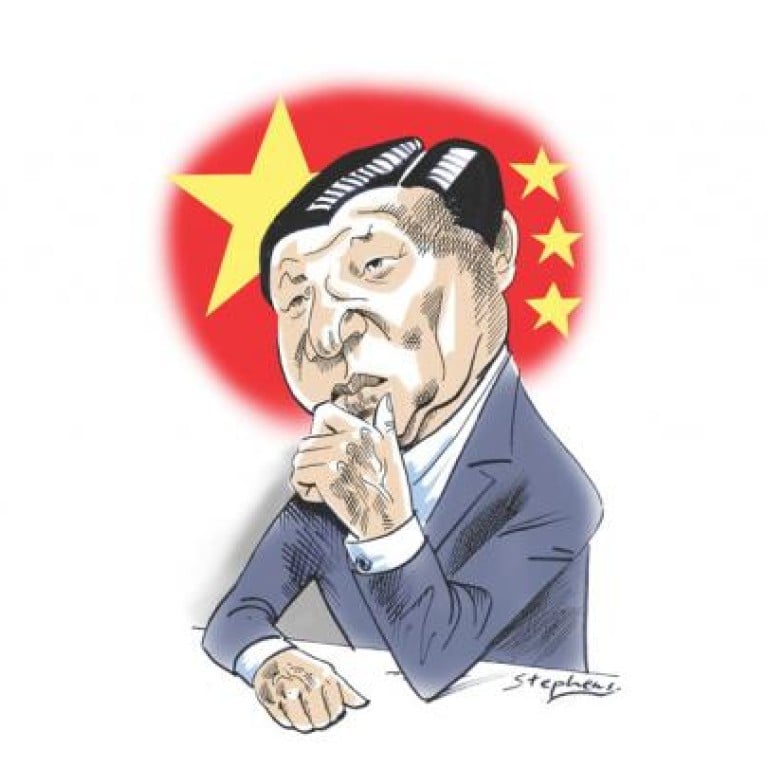
Will Xi's ascension herald political reform?
Patrick Mendis says China's incoming leader will probably stay true to his cultural and philosophical heritage, and any reform of the political structure is likely to be gradual
History is destiny for the Chinese people, as Mao Zedong and Deng Xiaoping each proved the veracity of Confucius' mantra: "It takes but one word, it takes but one man to settle the fate of an empire." Beijing's leadership transition occurring shortly after the US presidential election may possibly be another historic moment for China to begin the world anew - this time, for a "Pacific" century.
Will the incoming Chinese president Xi Jinping take the "one word" of Deng's "reform" and expand the meaning to include political restructuring? Through Deng's strategies, over half of the Chinese people have been lifted out of poverty while other countries - including the United States - have benefited economically from China's peaceful rise.
The one-trillion-dollar question from Washington is: Will Xi be the next "one man to settle the fate" of the world's most populous country and be Deng's champion in the political realm?
Translating China's economic power into political reform involves a high-stakes gamesmanship. Regardless, the slated leadership of the Politburo Standing Committee will inevitably wrestle with the growing feelings of injustice among restless middle-class Chinese, especially the educated youth looking for financial and social mobility.
Alongside greater wealth and more education, a large number of Chinese have increasingly tasted freedom. The freedom to express grievances - especially by farmers and factory workers - is a healthy democratic sign. The Chinese people expect more justice. In one recent example, a Guangdong court awarded compensation of 825,000 yuan (HK$1 million) for loss of "freedom and emotional distress" to 39-year old Huang Liyi, who served 11 years in jail after being wrongfully convicted for fraud. Indeed, China is slowly changing.
Deng's legacy, with his slogan of "to get rich is glorious", has proven to be costly. It is not only associated with corruption, environmental degradation and public health concerns, but also with the unintended social and political consequences of his economic reform policy. With their material needs fulfilled, Chinese people will naturally turn to non-material aspirations like freedom and democracy. Thomas Jefferson explained it this way: "Human nature is the same on every side of the Atlantic [and the Pacific] and will be alike influenced by the same causes."
This human tendency will undermine the political and economic power vested in the Communist Party. The Chinese attach great emphasis to education - a prized Confucian value. It is the silent force behind societal transformation for greater public good.
Last year alone, over 150,000 Chinese students enrolled at US universities. Several offspring of top-ranking Communist Party leaders attended prestigious American universities, such as the Harvard-educated grandchildren of Jiang Zemin and Zhao Ziyang, and Xi Mingze, the daughter of Xi Jinping, is now a student at the same university.
The implications of such educational and cultural exchanges are far-reaching; the eventual outcome of Western- educated Chinese returning home will fuel the needed creative tension for a Chinese renaissance.
When Xi visited President Barack Obama at the White House in February, he took the opportunity to see his "old friends" in Iowa. "My impression of the country came from you. For me, you are America," he told them. Iowan farmers never imagined they would be having a tea and champagne reunion with the future communist leader of China.
Before the then 32-year-old agricultural official from Hebei province first stayed with a Muscatine farming family in 1985, his father Xi Zhongxun had visited Iowa five years earlier as governor of Guangdong province.
In Confucian societies, values of friendship, loyalty and family matter. Despite the Communist Party's occasional anti- American rhetoric, Xi's reunion with his host family represents a promise of a greater bond between the two leading nations. His reunion is an emotionally beneficial investment that is acutely needed to dispel misconceptions on both sides of the Pacific.
Like Mikhail Gorbachev, the first Soviet leader to have been born after the revolution of 1917, Xi is the first Chinese leader born after the birth of the People's Republic of China in 1949. But Xi is unlikely to launch a Perestroika-like political restructuring in China - that would be catastrophic. Instead, Chinese strategists and politicians are studious. They may return to following Deng's Confucian-like advice to "conceal our potential and gain time".
Leading up to the Beijing 2008 Olympic Games, a State Council white paper on political democracy released in 2005 stated: "Democracy is an outcome of the development of political civilisation of mankind. It is also the common desire of people all over the world."
In China, however, democracy will probably emerge and evolve gradually with some characteristics of Confucian philosophy. It might look more like a Singaporean-style nation-state. However, the vast land mass of China with over 1.3 billion people is the Confucian cradle of the "civilisation state", as opposed to a tiny city-state of slightly over five million Singaporeans.
But as the product of a new generation, might Xi, as president, do the unthinkable by taking the advice of Sun Tzu? The ancient Chinese military strategist advised in : "Let your plans be as obscure and impenetrable as the night. But when you decide to move, fall onto the enemy like lightning."
If the new president takes China down this path, all bets are off the table for a Chinese renaissance and a Pacific century. The fate of this modern empire largely depends on Xi and his leadership skills within the constraints of the Politburo.
